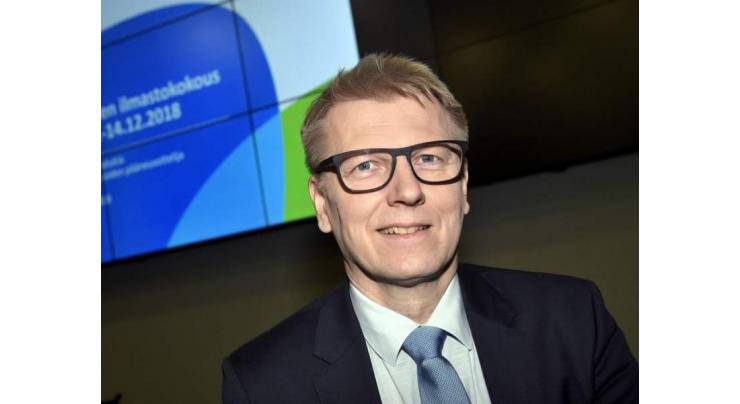
- Home
- Business
- News
- Nine EU Ministers to Discuss Climate Change Impact on Economy on February 11-12 in Finland
Nine EU Ministers To Discuss Climate Change Impact On Economy On February 11-12 In Finland
Umer Jamshaid Published February 11, 2019 | 04:41 PM

Ministers and state secretaries from nine EU countries will discuss in the Finnish city of Espoo on February 11-12 the impact of climate change on the economy and will be engaged in development of a common EU position on this issue, the Finnish Ministry of the Environment, Energy and Housing said on Monday
HELSINKI (UrduPoint News / Sputnik - 11th February, 2019) Ministers and state secretaries from nine EU countries will discuss in the Finnish city of Espoo on February 11-12 the impact of climate change on the economy and will be engaged in development of a common EU position on this issue, the Finnish Ministry of the Environment, Energy and Housing said on Monday.
"Ministers and state secretaries from Belgium, France, Germany, Luxembourg, the Netherlands, Slovakia, Slovenia and Sweden have been invited by Kimmo Tiilikainen, Minister of the Environment, Energy and Housing in Finland. The aim of the meeting is to discuss and develop common ideas and initiatives that are important for future circular economy policies in the European Union but also at the national level," the statement said.
The Finnish ministry added that the circular economy should become the next stage of economic development.
"Today, we extract over 80 billion tonnes of materials per year, of which a mere nine per cent is reused or recycled by the global economy. Switching to a more circular economy in the EU alone could cut industrial emissions by more than half by 2050. Therefore, it is important to develop strategies for key sectors and industries and to take into account circular actions and their decarbonisation potential," the ministry said.
During the trip to Finland, EU ministers will also visit European Chemicals Agency to discuss the role of the chemicals management system in promoting circularity. According to the ministry, circularity of the economy much depends on the knowledge of chemical composition of consumer products and the ability to track chemical substances in waste streams and material flows.
Related Topics
Recent Stories

Mired in crisis, Boeing reports another loss

Session Awarding Ceremony 2024 held at Cadet College Muzaffarabad

Austrian ski great Hirscher to make comeback under Dutch flag

Pakistan, Japan agrees to convene 'Economic Policy Dialogue'

FM Dar conveys deepest sympathy on torrential rains devastation in UAE

Spain PM Sanchez says weighing resignation after wife's graft probe

Tennis: ATP/WTA Madrid Open results - 1st update

Long-lost Klimt portrait auctioned off for 30 mn euros

Osaka seals first win on clay since 2022 in Madrid

Earthquake jolts Karachi

Sindh minister orders operation after attack on police in Ghotki

TikTok to fight US ban law in courts
More Stories From Business
-

Mired in crisis, Boeing reports another loss
7 hours ago -

Pakistan, Japan agrees to convene 'Economic Policy Dialogue'
7 hours ago -

British-Pakistani firm unveils $35 million luxury apartments for overseas Pakistanis in Islamabad
7 hours ago -

European stocks lose momentum after global rally
7 hours ago -

New pulses varieties imperative to cater domestic food requirements: Dr Khalid Hasan
9 hours ago -

CEO KP-EZDMC meets CRBC officials
9 hours ago
-

Pakistan among nine poor countries that produces 90 percent cigarettes for world
9 hours ago -

Chief Minister Gilgit Baltistan Haji Gulbar Khan calls on Minister for Privatisation
10 hours ago -

Germany nudges up growth forecast, ailing economy at 'turning point'
10 hours ago -

Revised UAF budget recommended
10 hours ago -

IDEA, TEVTA organizes Job Fair for youth
10 hours ago -

Massive financial, administrative scam unearthed at SCCI
10 hours ago

















